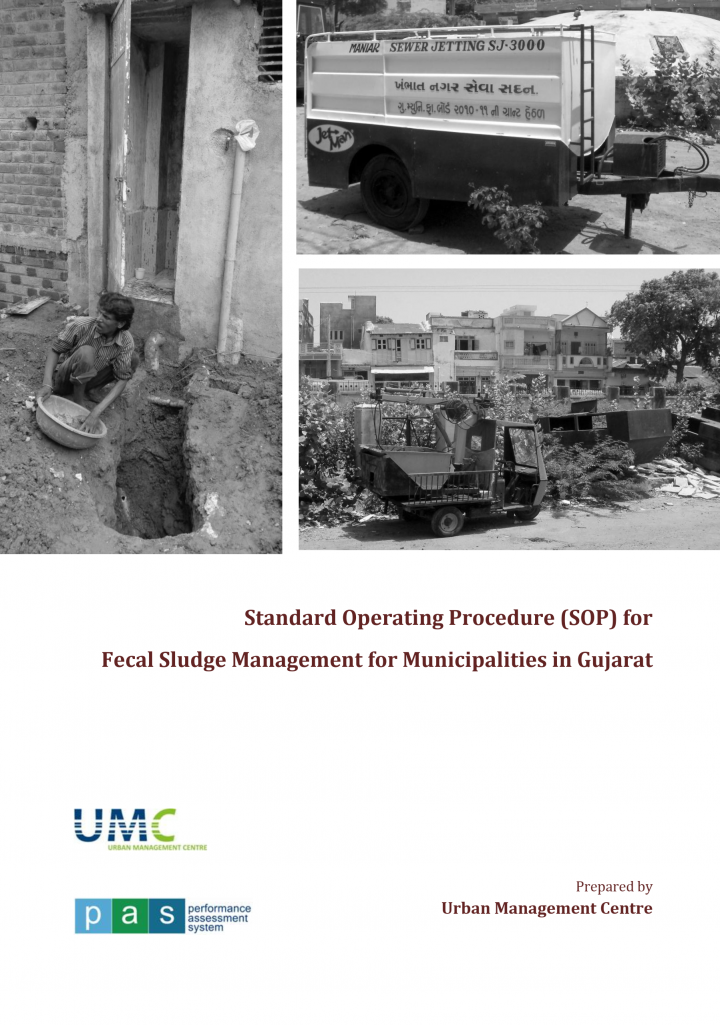Standard Operating Procedure (SOP) for Fecal Sludge Management for Municipalities in Gujarat Urban Management Centre (UMC) (2015)
Bibliographic information
Urban Management Centre (UMC) (2015). Standard Operating Procedure (SOP) for Fecal Sludge Management for Municipalities in Gujarat Urban Management Centre (UMC)
Filter / Tags
Urban (entire city)Guidelines and manualsEnglishImport to Sanitation Workers PlatformHealth & SafetyHealth & Safety
Downloads
Standard Operating Procedure (SOP) for Fecal Sludge Management for Municipalities in Gujarat
Type: application/pdf
Size: 2.27 MB

Published in: 2015
Pages: 36
Publisher:
Urban Management Centre (UMC)
Author(s):
Urban Management Centre (UMC)
Uploaded by:
GIZ
Deutsche Gesellschaft für Internationale Zusammenarbeit (GIZ) GmbH
